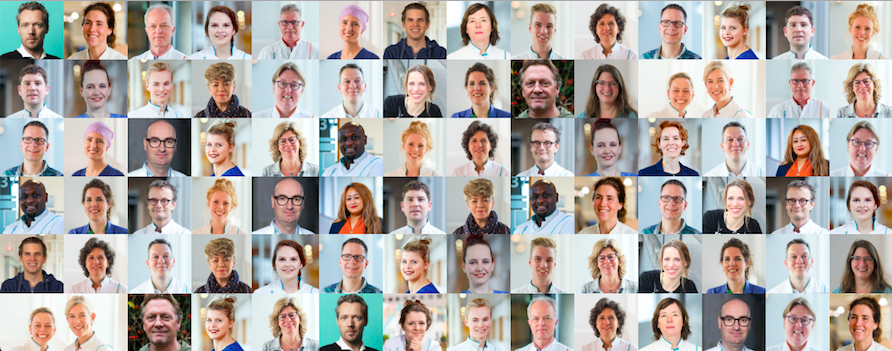PhD candidate ‘Neuroepigenetics of aberrant memory in PTSD’
PhD candidate ‘Neuroepigenetics of aberrant memory in PTSD’
You cannot apply for this job anymore (deadline was 21 May 2020).
Browse the current job offers or choose an item in the top navigation above.
Job description
Post-traumatic stress disorder (PTSD) severely deteriorates one's quality of life and forms a substantial economic burden to society. Its pathophysiological basis is poorly understood, making current treatments symptomatic and only effective for fewer than half the patients. Hence, there is an urgent need to advance the understanding of its pathophysiology. Interestingly, only a relatively small fraction (15-20%) of individuals exposed to a traumatic event develops the disorder, whereas most individuals recover adequately and stay healthy. This natural resiliency may be key to the development of new treatment options. In this project, we aim to investigate the neuro-epigenetic mechanisms involved in aberrant trauma memory processing in PTSD.
Experimentally, you will use an established mouse model for PTSD-induction, which has been shown to reliably induce PTSD-like symptomatology - i.e., hypervigilance, insomnia, compulsivity, and impaired attention and risk assessment - in a subset of mice, whereas others do not show any of these behaviours and are resilient. Contrasting these two behavioural phenotypes, you will investigate the neural ensembles representing the trauma memory engram and its epigenetic regulation. Moreover, you will test whether an abnormal epigenetic regulation of the trauma memory engram relates to symptoms of impaired fear extinction and trauma memory generalization. Lastly, the project aims at the manipulation of this epigenetic profile as way of treatment.
Specifically, you will learn to design, perform, and analyse behavioural animal experiments, as well as molecular tools of immunohistochemistry (and fluorescence imaging), Fluorescence Activated Cell Sorting (FACS), chromatin immunoprecipitation (ChIP), and quantitative PCR. Moreover, you will implement intracranial surgeries for viral manipulations. You will collaborate with scientists with varying disciplines, participate in international conferences, and prepare manuscripts for publication as well as a thesis at the end of the project.
Experimentally, you will use an established mouse model for PTSD-induction, which has been shown to reliably induce PTSD-like symptomatology - i.e., hypervigilance, insomnia, compulsivity, and impaired attention and risk assessment - in a subset of mice, whereas others do not show any of these behaviours and are resilient. Contrasting these two behavioural phenotypes, you will investigate the neural ensembles representing the trauma memory engram and its epigenetic regulation. Moreover, you will test whether an abnormal epigenetic regulation of the trauma memory engram relates to symptoms of impaired fear extinction and trauma memory generalization. Lastly, the project aims at the manipulation of this epigenetic profile as way of treatment.
Specifically, you will learn to design, perform, and analyse behavioural animal experiments, as well as molecular tools of immunohistochemistry (and fluorescence imaging), Fluorescence Activated Cell Sorting (FACS), chromatin immunoprecipitation (ChIP), and quantitative PCR. Moreover, you will implement intracranial surgeries for viral manipulations. You will collaborate with scientists with varying disciplines, participate in international conferences, and prepare manuscripts for publication as well as a thesis at the end of the project.
Specifications
- max. 36 hours per week
- €2422—€3103 per month
- Nijmegen View on Google Maps
Requirements
The ideal candidate will have:
- Master's degree and excellent track record in (medical/molecular) biology, molecular life sciences, biomedical sciences, medicine, neuroscience, or in a related field.
- Interpersonal and communication skills to effectively collaborate and communicate in academia.
- A proactive and goal-directed attitude, good organizational skills.
- Fluency in written and spoken English.
- The capacity to participate in an interdisciplinary, international, and translational research environment.
- FELASA Certificate ('Artikel 9 Wet op Dierproeven') to conduct animal experiments.
- Experience in rodent research; behavioural testing, intracranial surgery, molecular/cellular neuroscientific techniques.
Conditions of employment
Fixed-term contract: 4 years.
The start date for this position is between September and November 2020.The candidate will be appointed at the department of Cognitive Neuroscience, Radboudumc as a PhD student for a period of four years.
Upon commencement of employment we require a certificate of conduct (Verklaring Omtrent het Gedrag, VOG) and there will be, depending on the type of job, a screening based on the provided cv. Radboud university medical center's HR Department will apply for this certificate on your behalf.
Read more about the Radboudumc employment conditions and what our International Office can do for you when moving to the Netherlands.
Employer
Radboudumc
Research environmentThis project is a collaboration of:
- The research group of Dr. Marloes Henckens, assistant professor at the department of Cognitive Neuroscience (CNS) of the Radboudumc, focusing on the neural correlates of differential susceptibility to stress-related disorders, with a specific interest in PTSD.
- The research group of Dr. Johannes Gräff, assistant professor at the Mind Brain Institute of the École Polytechnique Fédérale de Lausanne (EPFL), focusing on the epigenetic mechanisms involved in learning, memory and memory loss.
Research Institutes
At the moment there are more than 1,300 PhD candidates at our medical hospital. This number includes PhD candidates on our pay roll as well as external candidates (those employed somewhere else but researching on our premises).
- Radboud Institute for Health Sciences: ± 700
- Radboud Institute for Molecular Life Sciences: ± 400
- Donders Center for Medical Neurosciences: ± 200
Radboudumc
Radboudumc strives to be a leading developer of sustainable, innovative and affordable healthcare to improve the health and wellbeing of people and society in the Netherlands and beyond. This is the core of our mission: To have a significant impact on healthcare. To get a better picture of what this entails, check out our strategy.
Read more about what it means to work at Radboudumc and how you can do your part.
Specifications
- PhD
- Natural sciences
- max. 36 hours per week
- €2422—€3103 per month
- University graduate
- 117863-P608210-1
:fill(white)/logos/umcr-en-wide.png)
